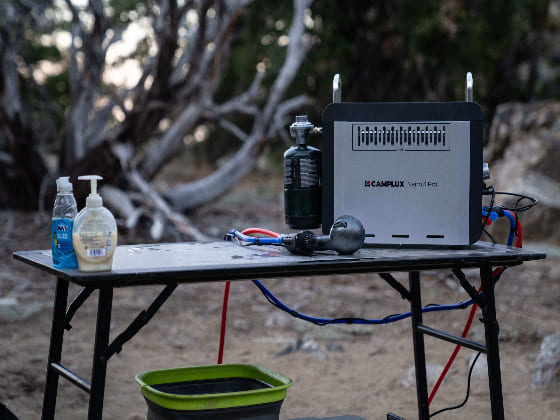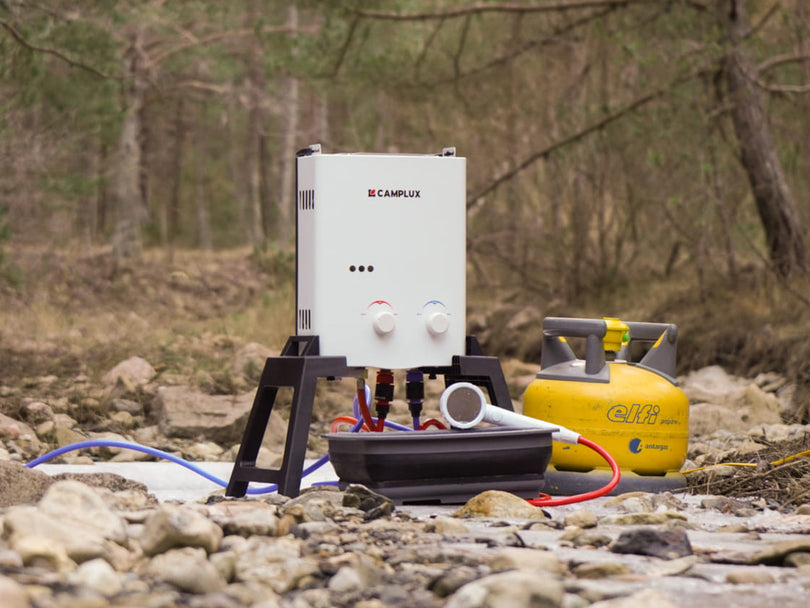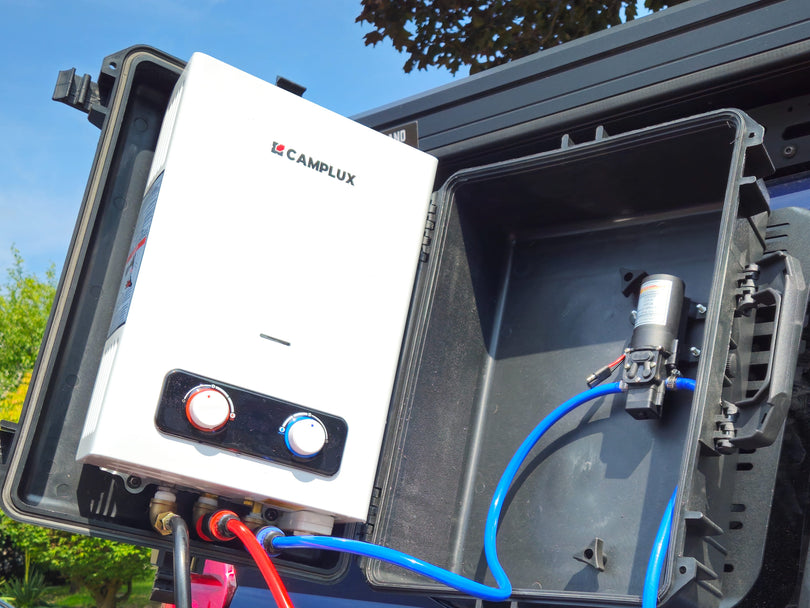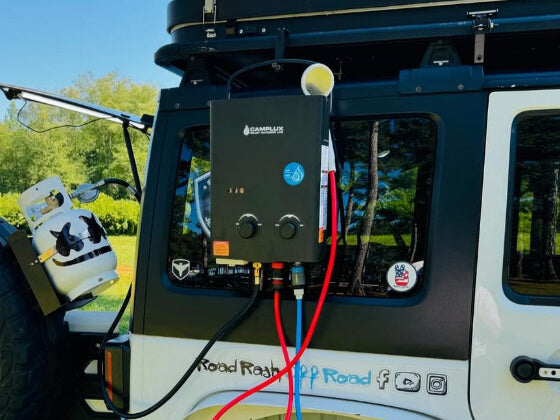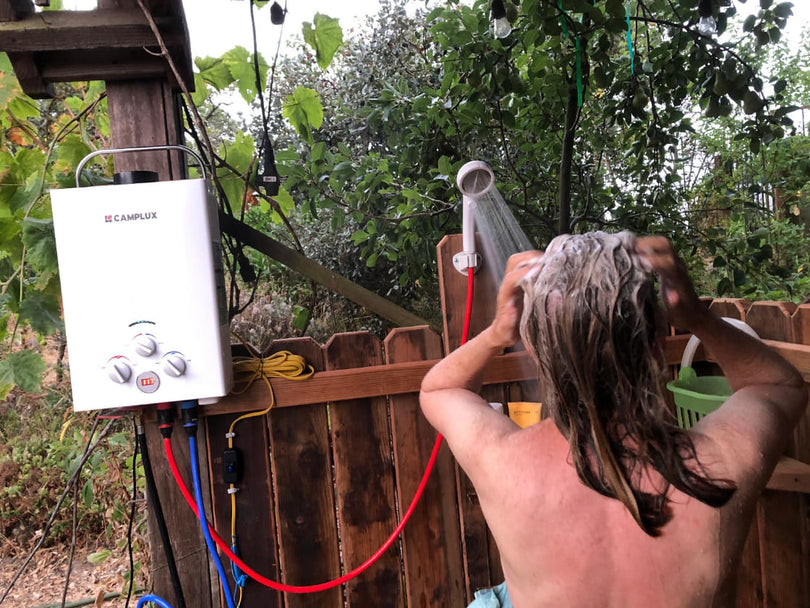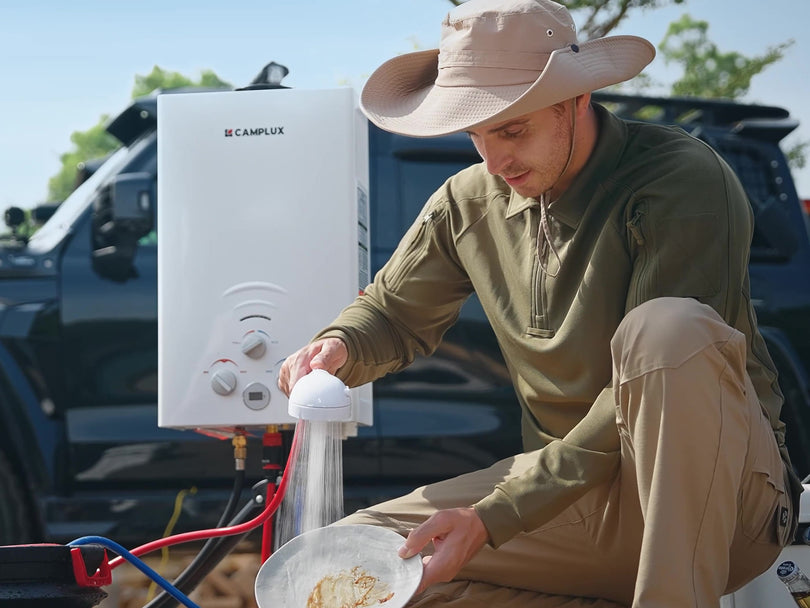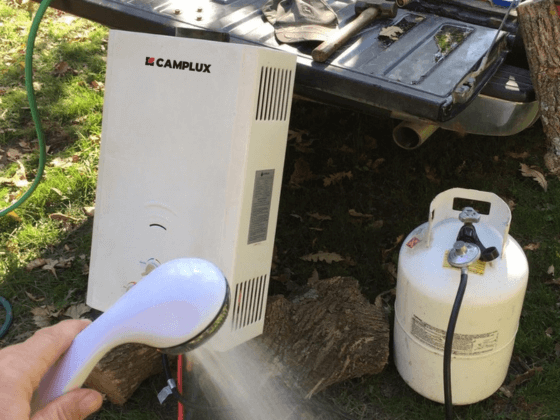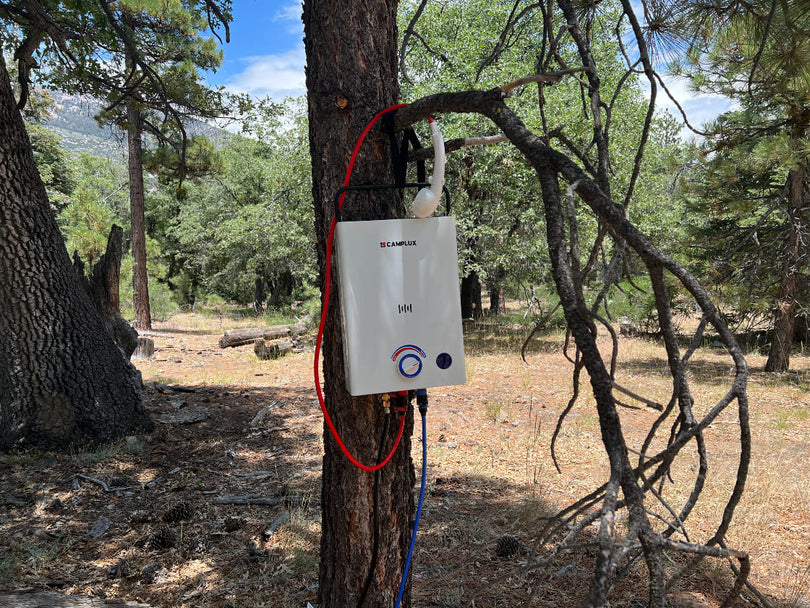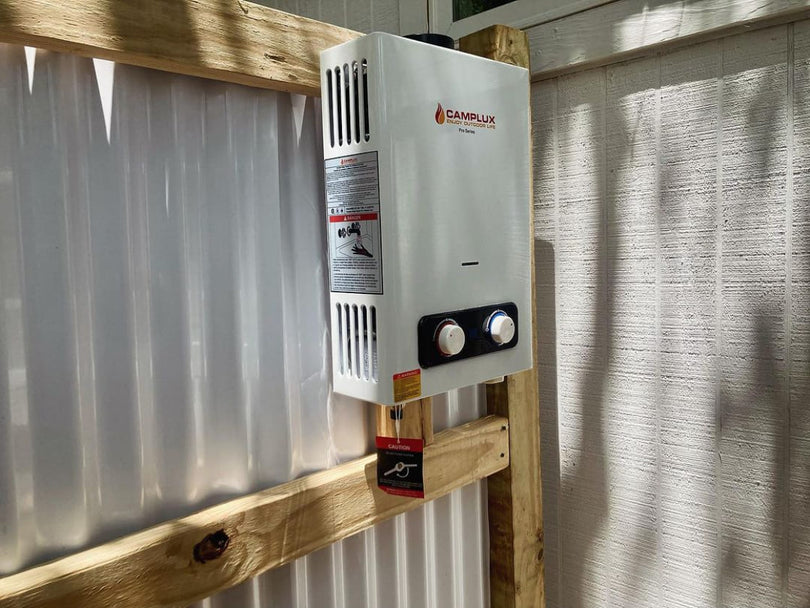Picking the right gas water heater for your home can feel like a big deal. There's a bunch of types out there, each with its own perks and quirks. Whether you're looking for something energy-efficient or just want a reliable hot water source, understanding what each type offers is key. This guide will break it all down for you, so you can make a choice that fits your needs and budget.
Key Takeaways
- Get to know the different types of gas water heaters: conventional, tankless, and condensing.
- Look for energy efficiency ratings to save on bills in the long run.
- Consider the size and capacity based on your household's hot water needs.
- Think about safety features and installation requirements.
- Compare gas water heaters with electric and hybrid models to find the best fit.
Understanding Gas Water Heater Types

Conventional Tank Gas Water Heaters
Conventional tank gas water heaters are the most traditional type, often found in many homes. They store hot water in a large tank, which can range from 20 to 80 gallons. The main advantage is their ability to deliver a continuous supply of hot water, making them a solid choice for large families or homes with high hot water demands. However, they can be less energy-efficient because they constantly heat and reheat the water to maintain the desired temperature. This constant heating can lead to higher energy bills over time.
Tankless Gas Water Heaters
Tankless gas water heaters, also known as on-demand water heaters, heat water directly without the need for a storage tank. When you turn on the hot water tap, cold water travels through a pipe into the unit, where it is heated by a gas burner. These units are highly energy-efficient since they only heat water when needed, which can result in significant energy savings. They also take up less space and can provide an endless supply of hot water, making them ideal for households with varying hot water needs. However, the initial cost can be higher, and they may require upgrades to existing plumbing.
Condensing Gas Water Heaters
Condensing gas water heaters are similar to conventional models but with a twist. They utilize the heat from exhaust gases to heat the water, which would otherwise escape out of the flue. This makes them more energy-efficient than traditional tank models. Condensing heaters are particularly beneficial for larger households or homes with a high demand for hot water, as they can provide significant long-term savings on energy bills. However, they are typically more expensive to purchase and install, and they require a dedicated venting system to operate efficiently.
Choosing the right type of gas water heater can greatly impact your home's energy efficiency and comfort. It's important to weigh the initial costs against potential savings and consider your household's hot water needs.
Key Features to Consider in a Gas Water Heater
Energy Efficiency Ratings
When picking a gas water heater, one of the first things you should look at is its energy efficiency rating. This rating tells you how well the heater converts gas into hot water. A higher rating means more savings on your energy bills. Look for models with the ENERGY STAR label, as they meet strict efficiency guidelines. While some efficient models might cost more upfront, they can save you money in the long run by using less gas.
Capacity and Size
Choosing the right size is crucial. You want a heater that can handle your household's hot water needs without wasting energy. Consider the number of people in your home and your typical water usage. A larger tank might be necessary for bigger families, but it will also take up more space. If space is tight, a tankless or compact model might be a better fit.
Safety Features
Safety is a big deal with gas water heaters. Check for features like a temperature and pressure relief valve, which prevents the tank from overheating. Also, a carbon monoxide detector is a must-have to alert you of any gas leaks. Regular maintenance and inspections can help ensure your water heater is running safely.
When selecting a water heater, evaluate the fuel type and look for features that improve performance, including digital controls and enhanced insulation. Learn more about what to consider when choosing a water heater.
Installation and Maintenance of Gas Water Heaters
Professional Installation Tips
When it comes to installing a gas water heater, getting it right the first time is crucial. Hiring a professional is often the best route, ensuring that everything is set up according to local codes and safety standards. A licensed plumber or HVAC technician can handle the complexities of gas line connections and venting, which are essential for safe operation. Here's a quick rundown of what to expect during installation:
- Proper Sizing: Make sure the water heater is the right size for your household needs. Too small, and you might run out of hot water; too large, and you're wasting energy.
- Venting Requirements: Gas water heaters need proper ventilation to expel exhaust gases safely. This might involve adding new venting systems if your home lacks them.
- Gas Line Connections: Ensuring that gas lines are properly connected and leak-free is a must. This is not something you want to DIY unless you're experienced.
For those considering doing it themselves, a step-by-step guide can be helpful, but remember that professional help is always recommended.
Routine Maintenance Practices
Keeping your gas water heater in top shape requires regular maintenance. A little effort can go a long way in extending the life of your appliance and improving its efficiency. Here's a simple checklist:
- Flush the Tank: Sediment can build up over time, reducing efficiency. Flushing the tank annually helps maintain performance.
- Check the Anode Rod: This part helps prevent rust inside the tank. Inspect it every couple of years and replace it if necessary.
- Test the Pressure Relief Valve: This valve is crucial for safety, releasing excess pressure to prevent the tank from bursting. Regular checks can prevent accidents.
Troubleshooting Common Issues
Even with regular maintenance, problems can arise. Knowing how to troubleshoot common issues can save you time and money. Here are a few typical problems and their solutions:
- No Hot Water: Check if the pilot light is out or if the thermostat is set too low. Sometimes, a simple adjustment can fix the issue.
- Strange Noises: Rumbling or popping sounds often indicate sediment buildup. Flushing the tank might solve this.
- Water Leaks: Inspect connections and valves. If the tank itself is leaking, it might be time for a replacement.
Keeping your gas water heater well-maintained not only ensures a steady supply of hot water but also enhances safety and efficiency in your home.
Comparing Gas Water Heaters to Other Types
Gas vs. Electric Water Heaters
When choosing between gas and electric water heaters, it's important to consider various factors. Gas water heaters typically heat water faster due to their higher recovery rates, which is great for households with high hot water demands. On the other hand, electric water heaters are often easier to install since they don't need gas lines or venting systems. Electric models can be a good choice if your home lacks existing gas infrastructure.
Here's a quick comparison:
| Feature | Gas Water Heater | Electric Water Heater |
|---|---|---|
| Heating Speed | Faster | Slower |
| Installation Complexity | More complex due to gas lines and venting | Easier, no venting or gas lines required |
| Operating Cost | Often lower if natural gas is cheaper | Can be higher, depending on electricity cost |
| Environmental Impact | Produces greenhouse gases | Can be powered by renewable energy sources |
Gas vs. Hybrid Water Heaters
Hybrid water heaters, also known as heat pump water heaters, offer a unique blend of efficiency and performance. They use electricity to move heat rather than generate it directly, making them more efficient than traditional electric models. If space and airflow aren't an issue, hybrids can be a great option, especially in warmer climates where they operate most efficiently. However, gas water heaters might still be preferred for their faster heating capabilities and lower upfront costs.
Consider these points:
- Efficiency: Hybrids are more efficient in energy use compared to gas.
- Installation: Hybrids need sufficient space and airflow, unlike gas models.
- Operating Cost: Savings depend on local energy prices.
Pros and Cons of Gas Water Heaters
Gas water heaters have their own set of advantages and drawbacks. Here's a quick rundown:
Pros:
- Faster heating, ideal for larger households.
- Generally lower operating costs in regions where gas is cheap.
- Reliable performance with high recovery rates.
Cons:
- Higher initial costs due to installation of gas lines and venting.
- Safety concerns, such as potential gas leaks.
- Environmental impact from burning fossil fuels.
When deciding on a water heater, weigh the pros and cons carefully. Consider your household's specific needs, local energy costs, and environmental priorities. Solar water heaters can also be an alternative for those looking to reduce energy costs and environmental impact.
Environmental and Economic Impact of Gas Water Heaters

Energy Consumption and Costs
Gas water heaters are known for their efficiency in heating water quickly. This often translates to lower operational costs compared to electric heaters, especially in areas where natural gas is cheaper than electricity. However, it's important to weigh these savings against the initial investment, as gas models can be pricier to purchase and install. The cost of running a gas water heater also depends on local energy prices and your household's hot water usage.
Environmental Considerations
When it comes to the environment, gas water heaters have their pros and cons. On the plus side, they burn natural gas, which is cleaner than some other fossil fuels. But, they still release carbon dioxide and other greenhouse gases. If you're trying to shrink your carbon footprint, this is something to think about. It's worth noting that electric and hybrid water heaters can sometimes be powered by renewable sources, offering a greener alternative.
Long-term Savings Potential
While gas water heaters might cost more upfront, they can offer significant savings over time, especially if you plan to stay in your home for a while. Their efficiency can lead to lower energy bills, offsetting the initial expense. Plus, they often have a longer lifespan, meaning fewer replacements over the years. For those planning long-term, the investment in a gas water heater can be a smart choice.
Choosing the right water heater isn't just about the immediate costs; it's about considering the long-term impact on both your wallet and the planet. Gas water heaters offer a balance between efficiency and environmental impact, making them a solid option for many homeowners.
Choosing the Right Gas Water Heater for Your Home
When you're in the market for a new gas water heater, it's not just about picking the first one you see. You need to think about a few key things to make sure you're getting the best fit for your home. Let's dive into what you should consider.
Assessing Household Hot Water Needs
First off, you gotta figure out how much hot water your household actually uses. If you've got a big family, you might need a larger unit to keep everyone happy. Think about all the times you need hot water, like showers, laundry, and washing dishes. Knowing your water usage patterns can help you choose a heater that meets your needs without wasting energy.
Evaluating Installation Constraints
Next, take a look at where you plan to install the heater. Do you have enough space? Is there proper ventilation? These are important because gas water heaters need a bit of room to "breathe." Also, check if there are any local building codes or restrictions that might affect your installation options.
Considering Future Upgrades
Finally, think about the future. Are you planning to expand your home or add more bathrooms? If so, you might want a water heater that can handle increased demand. Plus, newer models might offer better energy efficiency, which can save you money in the long run.
Remember, choosing the right gas water heater isn't just about the present. It's about planning for the future and ensuring your home's comfort and efficiency for years to come.
For more detailed guidance on how to choose the perfect water heater, check out our comprehensive guide on assessing your household's hot water needs and installation constraints.
Conclusion
So, there you have it, folks. Picking the right gas water heater isn't just about grabbing the first one you see. It's about figuring out what fits your home and lifestyle best. Think about how much hot water you use, what your budget looks like, and even how much space you've got. Gas heaters are great for quick heating and can save you money in the long run, but don't forget about the installation and maintenance they might need. Take your time, weigh the pros and cons, and maybe chat with a pro if you're still unsure. At the end of the day, the right choice will keep those showers hot and your energy bills in check. Happy heater hunting!
Frequently Asked Questions
What is the difference between a tank and a tankless gas water heater?
A tank gas water heater stores hot water in a large tank, ready to use when you need it. A tankless gas water heater heats water only when you turn on the tap, so it doesn't store water.
How do I know what size gas water heater I need?
To find the right size, think about how much hot water your family uses. A larger family usually needs a bigger tank. Consider peak usage times, like mornings when everyone showers.
Are gas water heaters safe?
Yes, gas water heaters are safe if installed and maintained properly. They have safety features like a valve to release pressure if it gets too high. It's important to check them regularly.
How long does a gas water heater last?
A gas water heater can last about 8 to 12 years. Regular maintenance, like flushing the tank and checking the pressure valve, can help it last longer.
Why does my gas water heater make noise?
Noises like popping or rumbling can happen when sediment builds up in the tank. Flushing the tank can help reduce these sounds.
Can I install a gas water heater myself?
It's best to have a professional install your gas water heater. They know how to do it safely and make sure everything is up to code.

